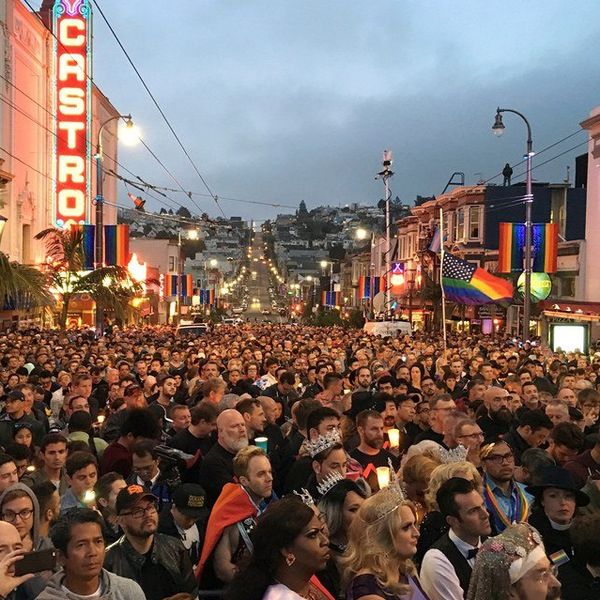Looking at the present situation of our country, I see injustices everywhere; immigrants are shackled and beaten despite only committing a crime classified as a misdemeanor. Citizens starve to death, unable to even afford food, while others make millions of dollars a minute for simply having their names signed on the right lines. People of color are shot in the back for holding only their cell phones or pens. Children are stolen from their families, students are shot and then blamed for their own deaths, women are raped and then called attention whores, and those who have the power to stop it all only watch and offer "thoughts and prayers," as though that will be the tipping point in rectifying all the horrors that we have seen unfold in the past decade.
We have reached a point in our history where our present authorities are no longer guiding us with the level of expertise and morality that we as citizens deserve. When times such as these arise, and we cannot depend on the current times to lead us, to whom may we turn except to ourselves? How are we to demand the leadership that we deserve except through standing tall and forbidding those in power to violate our rights and principles? What examples might we follow except that of the leaders of the past?
I want to make clear that I am not a person inclined to rebellion, or someone who is constantly on the lookout for the next fight. I do not walk around with a chip on my shoulder (though I do have a resting face that might say otherwise). But recently I have found myself getting into more and more heated debates over the issues that have always existed in society and culture - issues that we are only recently beginning to fully recognize. It is because of this recognition of issues and from a desire to help solve them that I am more willing than ever to fight back. My boundaries and principles have been violated by the negligence and abuse of squandered power than runs rampant in our everyday lives, and oppression is no longer something that happens only in the shadows. I am a pacifist, but I will not sit idly by and watch as my fellow citizens suffer unjustly.
So again I ask, who are we to turn to when we cannot turn to our leaders? For me, the answer laid in our history and in the development of this country. One of my greatest inspirations for how I might conduct myself in the face of corruption is Henry David Thoreau. In his essay "Civil Disobedience" Thoreau claims, "I do not wish to quarrel with any man or nation. I do not wish to split hairs, to make fine distinctions, or set myself up as better than my neighbors," (Thoreau 274). Here Thoreau shows himself to be a man who, like myself, is not speaking out of a desire to stir up trouble or out of a natural tendency of rebellion. Rather, Thoreau was a man who wanted only peace, yet who was pushed beyond the limits of what he felt his integrity could stand. This is the voice of a pacifist who greater powers have pushed into a corner and who sees no way out except to fight. Thoreau wrote "Civil Disobedience" as an act of rebellion against authority, not born out of anger or spite, but out of a fierce belief that he and all people must hold themselves and those in charge accountable for what they have control over to the best of their abilities.
Thoreau wrote "Civil Disobedience" in 1849 after spending a night in jail as punishment for refusing to pay taxes that would contribute to the Mexican War. Thoreau, being against the Mexican War, believed that it was his duty to withhold his support of the war in whatever way he could. He notes that he has paid highway taxes without qualms in the past, as he to be a good neighbor to those who use the highways; therefore, he shows, it is not through stinginess, but rather that he is "...concerned to trace the effects of my allegiance [to the state]," (Thoreau 273). Thoreau is aware of what his tax money will be supporting, and he has decided that he will have no affiliation towards that which so blatantly goes against his morals. For Thoreau, following through with his beliefs was more important than perfectly following the law.
From both Thoreau's example in life and his instruction in "Civil Disobedience", readers can conclude that the great writer, while not an anarchist, believed that people should employ a gentle yet unwavering rebellion against corruption in order to take responsibility where one could and make a difference where one is able. He compares citizens who blindly follow amoral laws to machines, saying that by never questioning or placing judgment on authoritative figures, citizens "... put themselves on a level with wood and earth and stones," (Thoreau 260). For Thoreau, citizens are meant to be more than simply tools for the government to use, and it is actually the citizens who hold higher power. An act of injustice should not be idly watched, even if the entity executing said action is one of higher agency and license. In Thoreau's own words, "If injustice is part of the necessary friction of the machine of government, let it go, let it go…" (Thoreau 265). Justice is the duty of the people as a whole to determine, and cannot be set aside to be controlled by only a few.
The concepts that Thoreau introduces his readers to in this essay were revolutionary and even radical during his time, yet they continue to be relevant and influential throughout history and even to modern forms of protest. Both Mahatma Gandhi and Martin Luther King Jr., two of the most influential Civil Rights activists in history, employed Thoreau's concepts of protesting injustice through peaceful, non-harmful methods. Modern-day protests also involve peaceful gatherings, marches, and boycotts rather than damaging property or attacking people. Whether it be the annual Women's March in Washington D.C. or the 2018 student-led March for Our Lives, these peaceful protests are the culmination of individuals like Thoreau who realize that their morals and ideologies do not align with the actions of their governments and societies. They, like Thoreau, decide that they must protest that wrong-standing authority and stand up for their convictions instead of merely sitting by the wayside, resigned to legislation.
I once feared what my changing beliefs would mean for me in regards to my relationships with my friends and family. Now, I realize that I do not really care about the relationships that I might have once had with people whose ideas and beliefs only further compromise my own principles. In "Civil Disobedience," Thoreau states that he "... cannot for an instant recognize that political organization as my government which is the slave's government also," (Thoreau 260). Thoreau was not a man inclined to violence, anger, or contempt; he was a man who, upon being released from prison, immediately joined a huckleberry-picking party and contemplated how inconsequential the State was in contrast to the grandness of nature. He was a man after peace, after freedom, and after honesty, yet when confronted with that which he saw as being a gross violation of the rights of other people, he took a stance which led to the writing of one of the most influential essays in American history. It was not through violence and hatred which Thoreau spoke, but through a love for and a valuing of other human beings, and a belief that all humans have the capacity and responsibility to make a difference in their societies.
When I think of Thoreau, I do not think of a man who spat in the face of his government, but rather of a man who wandered forest paths, picked berries, and stared injustice in the face, a quiet "No," on his lips when injustice asked for his approval. That "no" echoes throughout history in the sounds of feet marching in streets, in the cries of righteous fury rising under colorful banners, in the impassioned breaths of speakers and spokespersons standing behind podiums. I have myself been witness to the changes that these protests have brought to our society; I have cheered as the Lilly Ledbetter Act was passed. I have cried as my fellow students took to the streets. I have preached to my students, brothers, and cousins about how to respect one another's bodies and boundaries. All of this I do not for the sake of a rebellious spirit, or anger, or spite, but instead out of compassion for others and honesty to myself. In all of this action and passion, I feel the resolute integrity that Thoreau implemented in his life. I do not claim to have this art perfected in my own practice, and I do not believe that we as citizens have always employed civil disobedience correctly. I do believe, however, that if Thoreau could see our nation today, he would be pleased with each of our individual gentle rebellions.



















